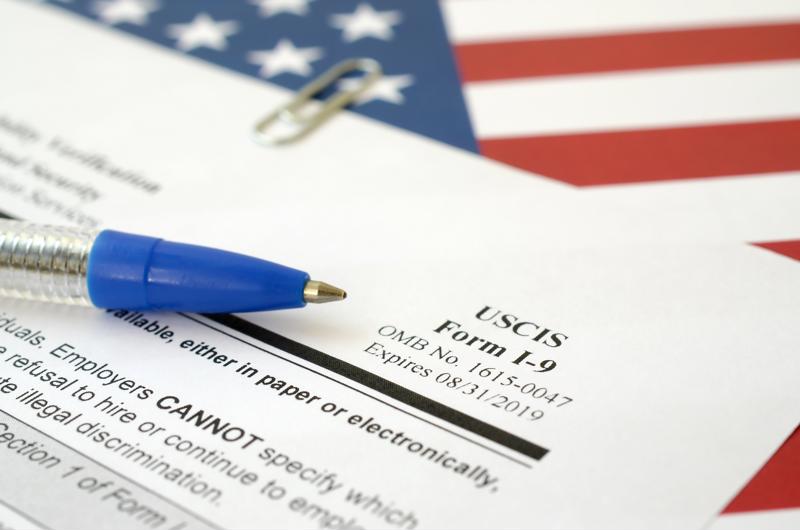
White House budget pushes for automated Form I-9 audits
The White House and the Department of Homeland Security have aggressively pushed for (and, in many cases, successfully implemented) numerous policy changes focused on curbing illegal immigration over the past three years. For many business leaders, these priorities are most visible and directly impactful in the administration's efforts to limit the H-1B visa program and make employment eligibility verification regulations stricter than ever before.
Based on its most recent budget proposal, the federal government plans to focus most closely on the latter: Significant funding is earmarked for the hiring of new Immigration and Customs Enforcement agents and the development of a cutting-edge automated system for handling Form I-9 audits. While the fiscal year 2021 budget, like many matters of the U.S. government, has effectively been put on hold due to the novel coronavirus pandemic, it will nonetheless be wise for company leaders to evaluate their onboarding procedures – and modify them as necessary – in anticipation of federal guidelines becoming even stricter.
The HAWKe and RAVEn systems
According to the more detailed, ICE-specific budget, two systems will be the cornerstone of the agency's efforts to simultaneously broaden the scope of its I-9 auditing and automate the actual nuts-and-bolts processes of audits themselves.
- The Repository for Analytics in a Virtualized Environment (RAVEn) platform, which was created and implemented in 2019, improves data mining and management for auditors (as well as the agency's more serious criminal enforcement efforts, under the Homeland Security Investigations unit). In a demonstration of its computing power, RAVEn simultaneously handled 16 separate worksite enforcement audits involving a total of 55,278 I-9 forms.
- Meanwhile, HAWKe – for which no full name is given in the budget's text – will be strictly focused on audit automation. Ostensibly, it will allow ICE to send Notices of Inspection en masse to companies that it plans to audit as well as manage other aspects of the process: paperwork submissions, payment of fines and so on. HAWKe is not yet operational, but ICE expects to have a pilot version of the program ready for field testing in summer 2020.
Massive ICE staffing increases
As much as the systems described above are able to do on their own, the White House and DHS are nonetheless seeking the funds to mount a massive increase in human staffing as well, requesting the funds necessary to hire 4,636 new agents, prosecuting attorneys and support staff. This would account for approximately $1.8 billion of the overall $9.82 billion requested to fund the proposed expansion and improvement of ICE. If passed, the proposed FY 2021 funding for the agency will be almost $2 billion larger than the last-enacted budget of $8 billion.
The budget's uncertain future
As noted by the Center on Budget and Policy Priorities, to become law in their initially proposed form, presidential budgets must be approved by Congress on or before April 15 of the year preceding the fiscal period for which they are designated. For 2020, that deadline has already passed, meaning that only previously authorized budget or appropriations legislation remains in place to fund government operations.
Budget resolutions from either the White House or Congress, such as the Bipartisan Budget Act of 2019 that currently bankrolls federal functions, are typically designed to fund multiple calendar years despite being designated for single fiscal years. Because of this and the ongoing coronavirus crisis that is keeping senators and representatives at home like many Americans, Congress is under no pressure to formally pass the administration's budget. The latter issue could also impede the enactment of DHS's desired funding for ICE, as legislation passed to help the economy stay on an even keel during the pandemic will likely add $1.6 billion to a national deficit already higher than any in history, per Bloomberg.
What businesses should do
Even if the proposed ICE budget doesn't go into full effect, it almost certainly will to some degree based on separate congressional appropriations. In other words, measures like I-9 audit automation are likely candidates to make it into law. According to the Fisher Phillips law firm, it behooves business leaders to assess their I-9 compliance with a eye toward the increased likelihood of an inspection – including larger companies that might previously have been more difficult to audit based on sheer size. Any necessary adjustments should be made sooner rather than later.
